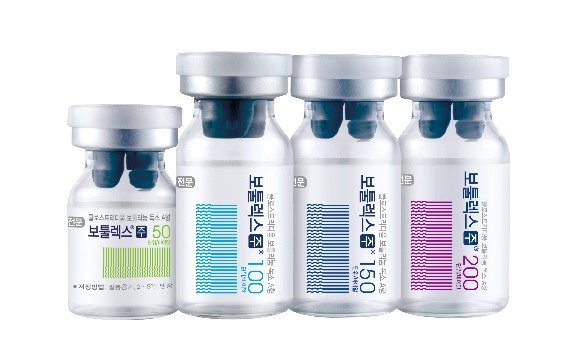A local court has accepted Hugel's application for suspending the execution of an administrative order to nullify the license of its botulinum toxin (BTX) product, withdraw and discard those already made.

The Seoul Administrative Court cited Hugel's application for suspending the execution of the administrative order issued by the Ministry of Food and Drug Safety. Accordingly, the decision suspended the revocation of the item license for Botulax until the 30th day from the date of the final ruling.
"Judging by the data submitted by the Ministry of Food and Drug Safety, it is difficult to believe that the suspension of validity is likely to have a significant impact on public welfare," the court said.
Previously, the ministry announced it would revoke the licenses of BTX products of Hugel and Pharma Research Bio, recall and discard the products because the companies did not get national shipping approval before selling them in the Korean market on Nov. 10.
The MFDS said it would cancel the permits for Hugel's four types of Botulax products – Botulax Inj. Botulax Inj. 50, Botulax Inj. 150, and Botulax Inj. 200.
Immediately after the MFDS' announcement, Hugel filed an injunction with the court to stop the regulator's administrative punishment. The Seoul Administrative Court accepted the company's request for temporarily canceling and suspending the MFDS's order on Nov. 11.
Hugel released a statement, saying that its BTX products were made for exports but that the health authorities regarded them for local sales and took action.
"Since the company produced and sold the products for export, it is not a drug subject to national shipment approval. However, products for domestic use have been sold with national shipment approval following the related regulation," the company said. "The Ministry of Food and Drug Safety has consistently guided that export drugs are not subject to national shipment approval."
Regrettably, the ministry has taken such measures while interpreting and applying the law differently from what they previously did, the company added.
Hugel stressed that according to the Ministry's National Shipment Approval System question book, published by the Ministry of Food and Drug Safety in 2012, drugs intended for export do not necessarily need national shipment approval. Still, an importer can apply for it if requested.
"With a management philosophy based on quality and trust, we have grown into a leading company in Korea and are striving to elevate the status of K-Toxin and K-Bio in the global market," a company official said. "The ministry's administrative disposition occurred due to a difference in the interpretation of the distribution method, so we will do our best to explain it through legal procedures."

